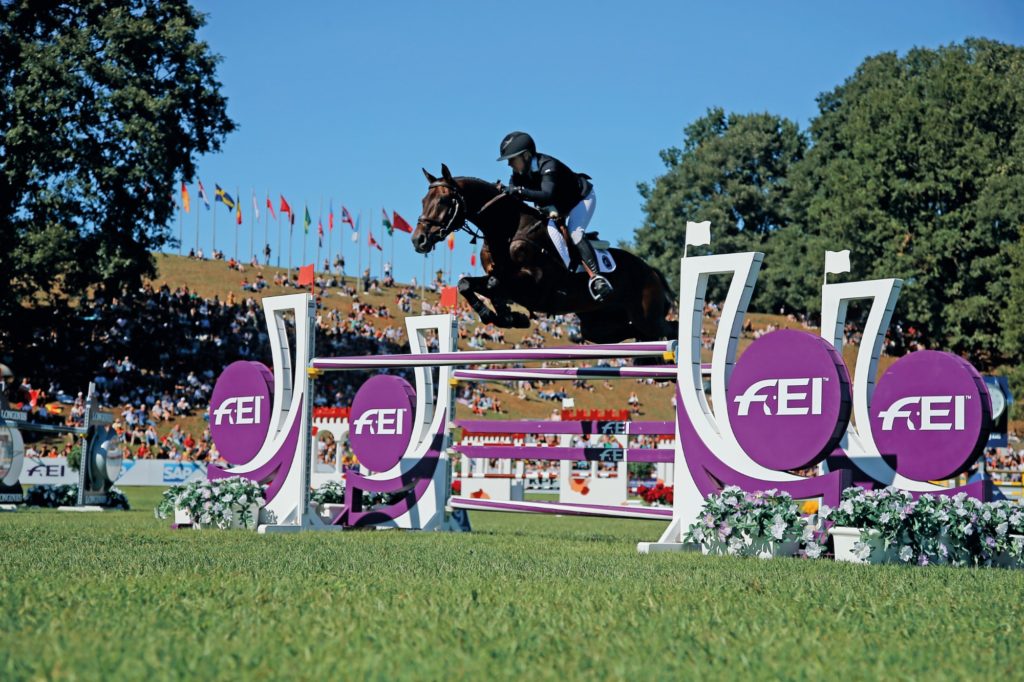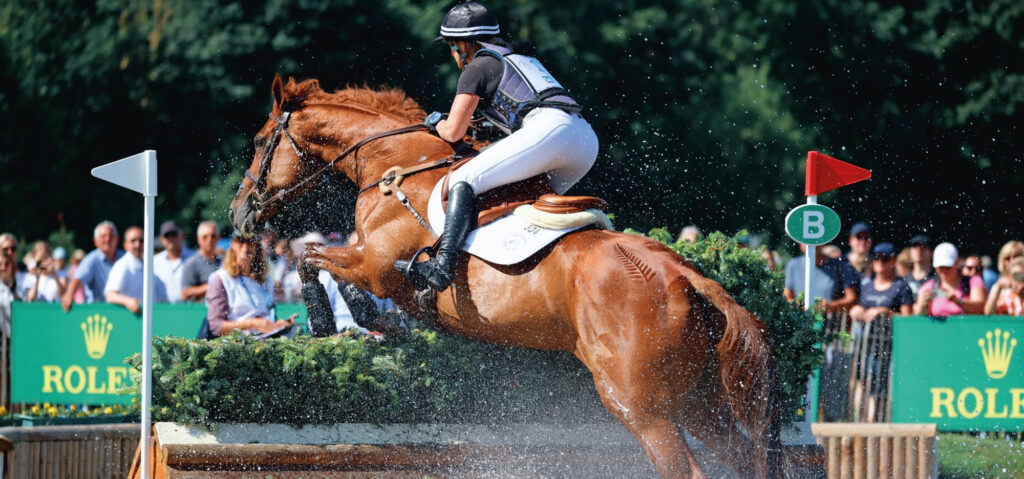THE PHYSICAL FITNESS OF THE RIDER
Susanna Cottica/ Verdiana Diaris
Nowadays equestrian disciplines require very thorough and targeted athletic preparation and training for both horses and riders. The modern training parameters require extreme fitness, which is essential to develop sporting and athletic qualities, including concentration, agility and reactiveness. This is essential not only to face competitions but to prevent injuries. Among the equestrian disciplines, eventing is the one that best represents the physical and athletic commitment of horses and riders. For this reason, we interviewed Jonelle Price, a leading event rider who lives in UK and represents New Zealand. Jonelle has had two children and has always remained at the top level internationally thanks to her strong will and commitment.
INTERVIEW WITH JONELLE PRICE
Do you think that nowadays, in every equestrian discipline, riders focus more than they used to on their own fitness as well as their horses’? Do you think that these days riders are more aware
of the importance of their own fitness and dieting?
I think there is still a very wide range of people. Even at the top end of the sport there is a very large amount that do absolutely nothing and some people that do. I have the feeling that the people who train do not necessarily do it to enhance their riding so much, but I think they do it for their own wellbeing and fitness satisfaction. I feel that nothing beats riding more than ten horses a day. People that do that are naturally just fit and strong, and they are certainly equipped to do the job very well, but the flip side is that the sport is getting so much more professional,
and at the top of the leaderboard the difference in the scoring is minimal, so every tiny little bit helps these days. People are behaving more like professionals and it is inevitable that riders are treating themselves a little bit more like professional athletes, rather than just riders.
As a professional event rider at the top of the game, as well as a mum of two, how did you keep fit during your pregnancies, how hard did you have train to get back to competitions and how long did it take?
I think it is always very personal and each woman is different. For me it was very easy, I did ride all the way through my two pregnancies, and I stayed at the gym with both of them right through a week before giving birth. I never stopped. I was riding three or four horses a day instead of eight or nine, but I kept up with my fitness all the way through. I think I bounced back much quicker because of this. Some people might have different views, but I only had one week off after giving birth. With my second child we went on a plane to Spain one week after she was born and I was back jumping when she was three weeks old. As I said, I kept riding all the way through as well as working out so for me it was very easy. I think if you stop riding and exercising it always takes longer to get back into fitness whether you are pregnant or not.
Did you carry on with the same kind of fitness work at the gym?
Yes, I did! Of course I had to modify some movements, I couldn’t do burpees at the end, and I was working more from a plank position rather than lying flat on the floor, but I just kept going.
I think there is always an element of common sense and there isn’t one rule that fits all. You just have to be governed by your body.

Rocca di Papa, Pratoni del Vivaro – 18 September 2022
Ph. Stefano Secchi/imageSS
What is your training regime? How much and how do you focus on your fitness and well-being?
I do a lot of CrossFit, a sport that I have been focusing a lot on in the last couple of years.
From this year, I have been concentrating more on managing my weight, and this has become for me a big motivation. I certainly don’t feel too big to ride but as I am getting older, I want to feel comfortable with my own weight. I have changed my system this year, which is a little bit of a new thing for me, but now I am
44 and I know women over fourty have to do less cardio and focus more on lifting weights.
I now do three strength sessions a week, and then I do three cardio sessions a week as well.
I certainly wouldn’t be able to maintain this type of training the whole year, but I do it for quite a few months, when I am home and not travelling so much for competitions. So, at the moment, I am working out six days a week.
So, you obviously manage your diet as well.
I love cooking and I have always been interested in nutrition, so this is part of this new regime. I have tried everything, like eating 1200kcal a day for six weeks and not losing a kilo, so this time I started working with a nutrition and fitness coach and it has been really interesting. It has been a big learning curve understanding what actually fueling your body means. And this is working for me.
We always pay great attention to what our horses eat, which supplements we give them. We employ nutritionists, physios, osteopaths, etc. but we don’t always pay enough attention to our wellbeing.
The big thing that changed for me was realising that when I was trying to eat 1500kcal a day I was only getting 30 – 40 grams of protein, which isn’t enough to fuel our body. The key part is to understand how to eat 140 grams of protein whilst still only eating 1500kcal a day when you are trying to build muscles and strength. In most top yards you will have the feed company nutritionist assessing the horses’ weight and condition but, as you were saying, we do not do this for ourselves as we don’t consider ourselves as athletes. If you want to be an athlete you must.
Do you have any advice, not just for female riders, but also for younger people approaching the sport on how to look after themselves, as well as their own horses?
I think at the end of the day life must be a balance, but riders should consider the longevity of this sport. We are in a sport where we have a really long career span. If you think we had athletes like Mark Todd who was 63 when he retired and was 60 and still competing in the Olympics. John Whitaker who is 68 and he is still at the very top of the sport. We, as riders have a long life and career span as athletes. The more balance you can have, not just in your workday but also holistically as a rider, the more time and attention you give to your health. This will pay dividends in the long run, and it is essential for injury prevention. It would be ideal to be able to hang up our boots and walk away from this long career, feeling good and healthy. It is not just here and now; it is about looking at the big picture. Remaining balanced in your life when you are so focused on your job is surely going to help that.
Photo Credits Stefano Secchi

